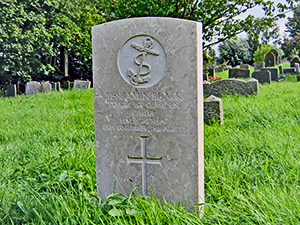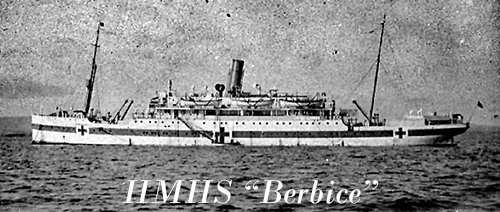First World War Project
Benjamin Dan BLACK (of Teynham)
b. 6th July 1896 Stoker 1st Class, Service Number K/31204 (Ch) |

Son of William and Minnie (née Millen) Black, of 2, Eastwood Cottages, Conyer, Teynham. He was one of eight siblings of which three served during the War - his older brother Ernest also perished at the end of the war. His elder siblings were - Edward, Minnie, Alfred, Ernest and Hilda. His two younger siblings were Frances A and Milly E (Nelly).
Benjamin's military record shows he was a "sawyer" before enlisting on 28th February 1916 "for the period of hostilities". In 1911, he was a brickfield labourer. His physical description is very brief - 5 feet 4½ tall, chest measurement of 37 inches, brown eyes and hair with a "fresh" complexion. His conduct throughout was "very good".
Having enlisted as a Second Class Stoker on 28th February 1916, he remained at Chatham until 3rd June 1916 before moving to the naval base at Gibraltar on 4th June 1916. He remained at Gibraltar until 18th August 1916. He then returned to the base at Chatham from 19th August to 4th September 1916 now recorded with No. 10316. He moved to Newcastle on 5th September but on 21st June 1917 he was promoted to First Class Stoker and remained based at Newcastle until 19th February 1918.

Returning to the Base at Chatham (Pembroke II) on 20th February he served from this base until 26th September 1918 when he moved to "HMS ATTENTIVE II", which was the parent establishment for the Dover patrol auxiliary small craft - from which he served aboard HMS Botha until 30th November 1918. He was returned to Woolwich aboard HMS Botha very briefly from 1st to 8th December 1918 when he "Died from Disease". His record states - "D.D. 8th December 1918, from influenza and pneumonia on board H.M.H.S. "Berbice"." For most of the war, this hospital ship was anchored in the Firth of Forth rather than at Woolwich but once the Armistice was announced the Navy North Sea flotilla returned to their home ports or to centres of medical expertise. So, there is a questionmark over exactly where Benjamin was when he died - however, his postings record does conclude "Woolwich" and "on board HMHS Berbice" - possibly in transit?
Benjamin's record only contains one ship's name - HMS "Botha". Otherwise he is only recorded against the landside bases. Perhaps he was held in reserve or performed harbour and achorage duties? On the face of it, he does seem to have spent most of his time in Home waters/North Sea - dying in Rosyth.
| East Kent Gazette of 4th January 1919 |
| BLACK: In loving memory of Benjamin Black, the dearly beloved son of Mr. and Mrs. W. Black, of Conyer, Teynham, who passed away December, 8th, on the Hospital Ship, Berbice, Rosyth, aged 22 years. – Peace perfect peace. From his sorrowing Mother, Father, Sisters and Brothers. |
Benjamin's death was notified to his sister, Hilda, at No.2 Eastwoods Cottages, Conyer, Teynham, Near Sittingbourne, Kent. Without stating the sum, his record also shows that a War Gratuity was paid. [See Appendix 2]
Benjamin was posthumously awarded the Victory and British War Medals. Medal Entitlement issued tohis Father. Index Casualty No. 2583/1918. [See Appendix 1]
Family of Benjamin Black
Other Family Members and WW1
- Brother Ernest Black died in service. Mercantile Marine. Pneumonia.
Additional Documents
- The Whitstable Times and Herne Bay Herald carried this report on 15th February 1919, which serves to illustrate how the epidemic was being experienced at home and how indiscriminate it was as to age, gender, or occupation:
THE INFLUENZA EPIDEMIC IN FAVERSHAM
The following interesting report on the influenza epidemic in Faversham during the past year was presented at the meeting of the Faversham Town Council last week:-
During the year there were two distinct outbreaks of Influenza, one in July and one in October, November and December. The former in this district was comparatively mild in character and only caused two deaths, but the latter was very severe and widespread and caused many deaths being the worst since 1890, if it did not surpass that in severity, as many believe.
| WEEKLY DEATHS (Week ending) |
AGE DISTRIBUTION | |||
| February 9th | 1 |
2 to 5 years | 1 |
|
| July 20th | 1 |
5 to 15 years | 2 |
|
| August 24th | 1 |
15 to 25 years | 10 |
|
| October 19th | 1 |
25 to 45 years | 18 |
|
| October 26th | 4 |
45 to 65 years | 2 |
|
| November 2nd | 3 |
Over 65 years | 1 |
|
| November 9th | 13 |
|||
| November 16th | 4 |
SEX DISTRIBUTION | ||
| November 23rd | 1 |
Males | 17 | |
| November 30th | 3 |
Females | 17 | |
| December 7th | 1 |
|||
| December 14th | 1 |
|||
34 |
||||
NOTE.- Over 80 per cent of the deaths occurred between the ages of 15 and 45 - the prime of life - not in extreme old age or infancy.
Six of these deaths should be referred to other districts.
It is difficult to estimate the number of cases that occurred; but between two and three thousand would not be an over-estimate I should say if all the slight cases are included; on this basis the case mortality is low; but the death-rate among the complicated cases was very high indeed; there were few deaths from influenza pure and simple; but when certain complications set in they were most refractory to treatment. Pneumonia was the most formidable symptom, but many died without any gross signs having developed; apparently from a general Toxaemia. In some cases the complications might have been attributed to exposure of want of early treatment, but in others they developed in spite of every care.
Previous attacks did not seem to afford any protection, in fact persons who had had attacks in June had second attacks in October.
The large number of cases and their severity made it very difficult to obtain proper nursing; the Cottage hospital and the Nursing Home were utilised for the worst cases. The infectivity of the disease seemed to be greatest where many people were gathered together, as in schools and factories, and seemed to be lessened by dilution with fresh air; free ventilation gave more protection from attacks than anything I could discover.
PRECAUTIONS.
Leaflets were distributed based on the recommendations of the Local Government Board and large placards were publicly exhibited.
The Infant Departments and one Girl Department of the Public Elementary Schools were closed for a time; also all the Sunday Schools. Also the afternoon performances of the public entertainments in the town.
Owing to the impossibility of obtaining nurses or help of any kind, it was impossible for the Authority to make any public provision of this nature.
The outbreak was so universal that it was impossible to say that any particular occupation or district was effected more than others.
I am, Yours obediently, CHARLES J. EVERS. M.D., M.O.H.
January 1919.
The Whitstable Times and Herne Bay Herald of 1st March 1919 also contained official advice on management that appear almost impossible to adhere to for large families in small homes or crowded tenements; the need to work to buy the food or doctor's time needed; soldier's at all times; naval personnel. All that said, subsequent research questions whether this influenza discriminated according to occupation.
THE INFLUENZA SCOURGE.
LOCAL GOVERNMENT BOARD PRECAUTIONS.
The following memorandum has been issued by the Local Government Board of precautions to be taken by the public:-
The golden rule is to keep fit, and avoid infection as much as possible.
The way to keep fit is to cultivate healthy and regular habits, to eat good food, and to avoid fatigue, shill and alcoholism. Healthy living does not of itself ensure against attack, but it makes the patient better able to withstand the complications which kill.
The early symptoms of influenza are usually those of a severe feverish cold. Though the actual cause of the disease is unknown, we do know that it is rapid in onset, that it is most infectious in its early stages, and that it is spread by discharges from the mouth and nose, and that it kills mainly by its complications. Every person suffering from the disease, no matter how mild the form, is a danger to others.
It is not always possible to avoid infection, but the risks can be lessened by - Health living, working and sleeping in well-ventilated rooms, avoiding crowded gatherings and close, ill-ventilated rooms, wearing warm clothing, gargling the throat and washing out the nostril, by wearing a mask and glasses when nursing or in attendance on a person suffering from influenza.
Do not waste money on drugs in the false hope of preventing infection.
Those attacked should go home, go to bed, and keep warm. Call in a doctor. Occupy, if possible, a separate bedroom or bed that is screened off from the rest of the room. When coughing or sneezing, hold a handkerchief in front of the mouth; the handkerchief should be boiled, or burnt if of paper. use a gargle, consisting of a solution of common salt (one teaspoonful to a pint of warm water) to which a few crystals of potassium permanganate are added - enough to make the solution pink. Be careful during convalescence in order to avoid relapse or complications. Avoid meetings and places of entertainment for at least one week after the temperature has become normal.
The mask, which may be made of gauze (four layers) or butter muslin (three layers), should cover the mouth and nose. To protect the eyes it is advisable to wear goggles.
It is stated that no drug has yet been proved to have any specific influence as a preventive of influenza.
[Note: the same newspaper carried claims from snuff retailers that those who took snuff appeared to be protected....]


 World War 1 Pages
World War 1 Pages